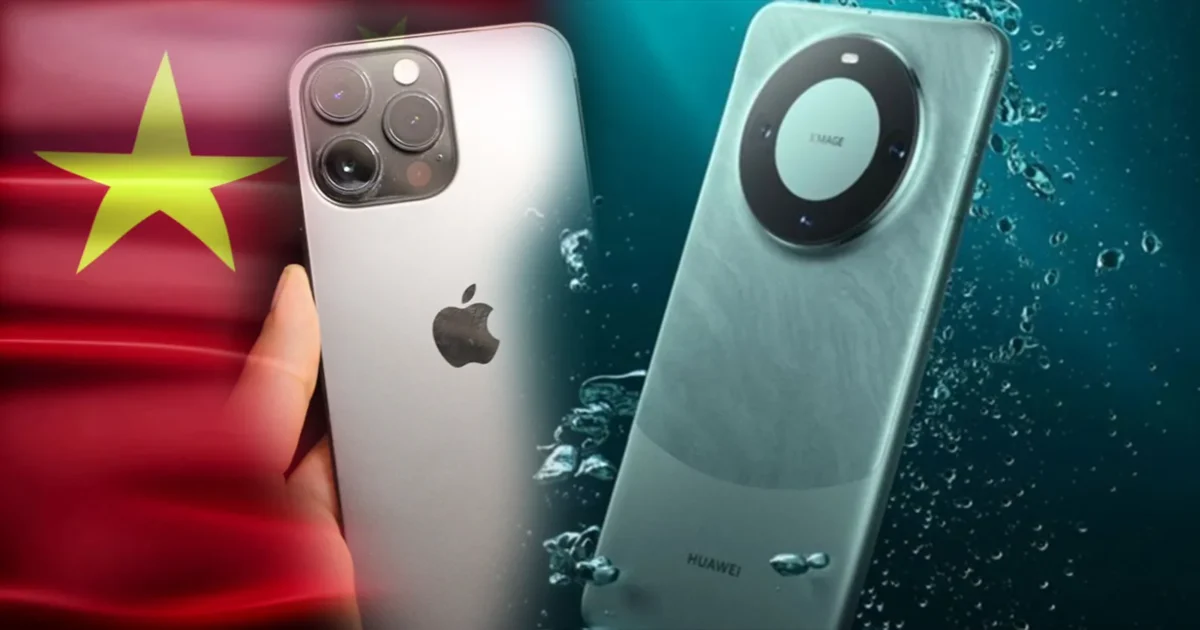
In the bustling streets of China’s tech landscape, where innovation reigns supreme, a fierce rivalry between Apple and Huawei continues to captivate the nation. As Apple unveiled its highly anticipated iPhone 15, the response in China was nothing short of a digital spectacle.
China, a pivotal market for the Cupertino giant, has long been a battleground for Apple and Huawei. Apple’s stronghold in China’s premium smartphone realm, partly attributed to Huawei’s smartphone business struggles amid U.S. export restrictions, faces its own unique challenges with the iPhone 15 launch.
Recent headlines rattled Apple’s shares and those of its suppliers as reports emerged suggesting Chinese government agencies and state-owned enterprises were discouraging the use of iPhones. Simultaneously, Huawei made a striking comeback with a new smartphone equipped with an advanced chip, signifying their determination to regain lost ground.
The curtain-raiser for Apple’s iPhone 15 prompted a whirlwind of online discussions, a tradition for new iPhone models. Mark your calendars for September 15 when the phone graces Alibaba’s Tmall marketplace, followed by in-store availability on September 22.
Social media platform Weibo became the epicenter of chatter, tallying a staggering 380 million views and over 800,000 interactions, including posts, comments, and likes, all centered around the iPhone 15.
Praising the iPhone 15 Pro’s revolutionary 3-nanometer chip, enthusiasts also celebrated Apple’s claim that console-quality games, including “Resident Evil 4 Remake,” could now be seamlessly enjoyed on their devices. This announcement struck a chord with China’s legion of mobile gamers.
However, not all were swayed by the allure of American technology. Some social media users expressed reservations about favoring an American brand over a homegrown competitor. This sentiment escalated following state media’s enthusiastic endorsement of Huawei’s Mate 60 Pro earlier this month, seen as a triumph over U.S. sanctions.
A poll conducted by Chinese news portal Sina on social media asked users to choose between the Mate 60 and the iPhone 15. The results revealed 61,000 votes in favor of Huawei’s device versus 24,000 for the iPhone 15.
Comparisons emerged regarding the Mate 60 Pro’s ability to make calls and send texts via satellite, a feature that the iPhone 15 could only match with satellite texts, not full-fledged calls. “The iPhone 15 can only send SOS messages via satellite, using last-generation technology already deployed in Huawei’s Mate 60, which supports full satellite calling,” critiqued one user.
Adding to the complexity, China’s smartphone market is in a slump, mirroring global trends. Analysts have cautioned that this, coupled with the country’s slowing economy, might cast a shadow on iPhone 15 sales.
To further complicate matters, third-party retailers slashed prices on the iPhone 14 Pro earlier this year, offering discounts of up to 10%. While this boosted sales, it could potentially dampen the demand for the latest iPhone series, as some consumers had their appetites whetted prematurely.
Archie Zhang, a research analyst at Counterpoint, remarked, “This is not a good signal for the upcoming 15 series as some demand has been fulfilled before the launch.” Before Huawei’s surprise comeback, their projections indicated that Apple’s sales in China for Q3 and Q4 would remain flat or slightly weaker than the previous year.
Will Wong, an analyst with industry research group IDC, emphasized the challenging terrain for Apple. “Sales of the iPhone 15 are not going to be easy, especially since Chinese consumers are either being cautious in spending or shifting their focus to leisure and travel.”
In response to these developments, China’s foreign ministry clarified that Beijing had not issued a ban on the purchase and use of foreign phone brands, including Apple. However, they acknowledged media coverage of security incidents related to Apple’s phones.
IDC anticipates a gradual decline in Apple’s share in China’s premium phone market due to heightened competition from Huawei. In the first half of 2023, Apple held a commanding 67% market share for phones priced over $600, with Huawei closely trailing at 15.6%.
As the dust settles, the battle for China’s smartphone market rages on, and only time will reveal which tech giant will emerge victorious in this high-stakes clash of innovation and consumer loyalty.



